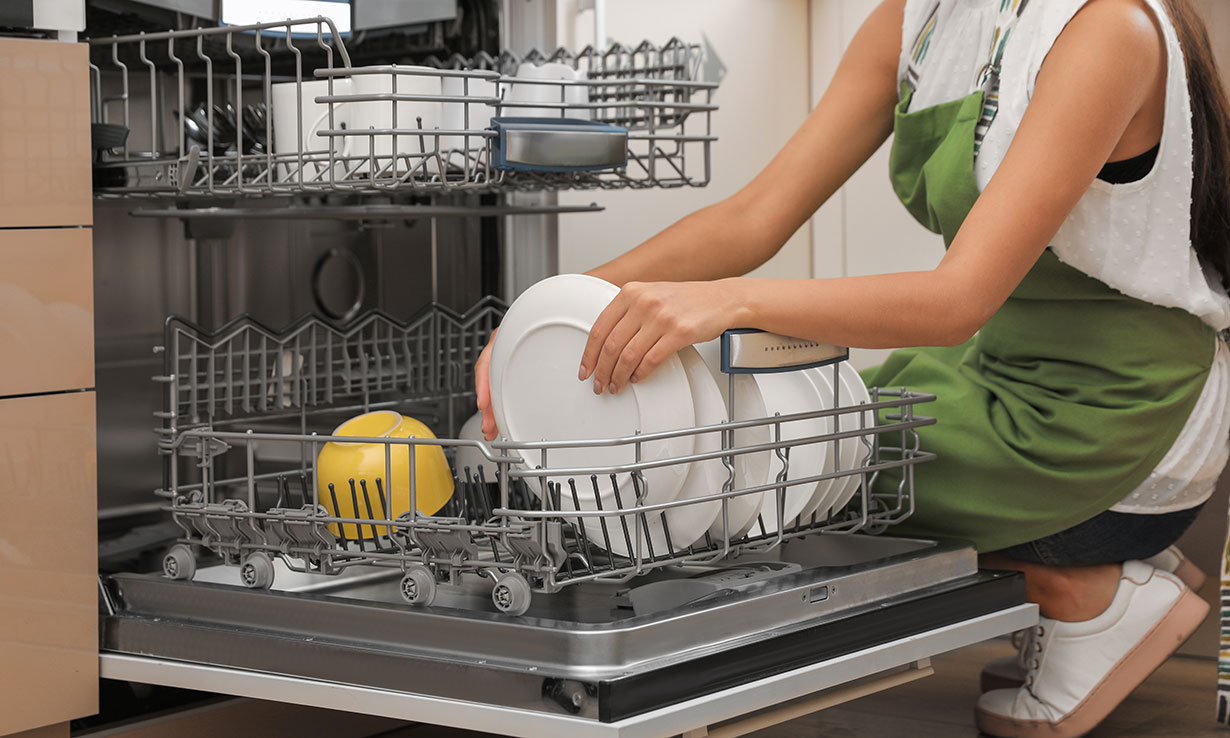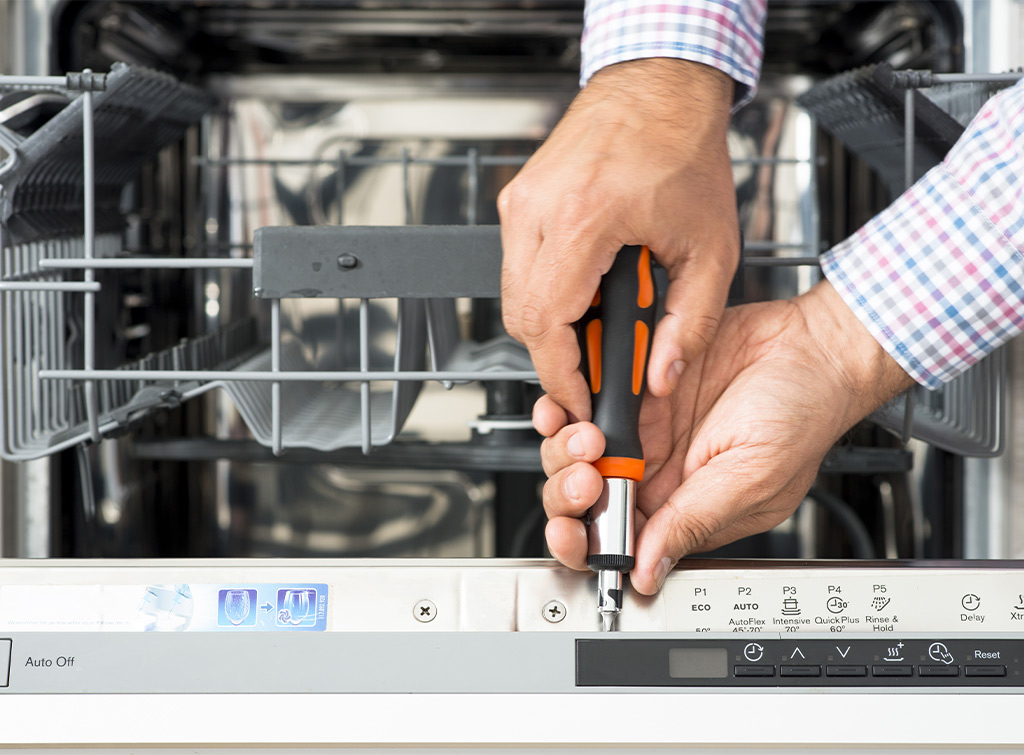This article following next involving The Most Common Dishwasher Problems is absolutely enlightening. Give it a go and draw your own personal conclusions.

Having your dishwashing machine breakdown or breakdown can be a big deal and also trigger some discomfort at home. Dish washers are makers that we use to tidy recipes as well as cutleries automatically to save us the tension of manually doing it.
Like every other device that relieves human effort, dishwashers can break down and develop some fault at some point in time. There are numerous mistakes your dish washer can develop, and also while several of them can be fixed by replacing some parts or repairing them, various other much more severe issues will certainly require that you get a brand-new dishwashing machine.
This short article will recognize a few usual mistakes your dishwashing machine could create to impede its overall efficiency and also just how these mistakes can be fixed.
Typical Faults
Usual dish washer mistakes might range from small to significant ones. Depending upon the extent, you will certainly either require the solutions of professional plumbers to deal with or change it.
A few of the most usual mistakes include:
Leaky Dish washer
This is most likely the most day-to-day dishwasher trouble, as well as fortunately is that it is very easy to determine. Leaks take place because of several factors, as well as the leaks can ruin your kitchen area. Common sources of dishwashing machine leakages include;
Bad-Smelling Dish washer
This is another typical dish washer problem, as well as it is mostly triggered by food debris or oil lingering in the device. In this situation, look for these bits, take them out and also do the recipes without any meals inside the equipment. Wash the filter completely. That will certainly help eliminate the poor scent. Ensure that you eliminate every food fragment from your dishes before transferring it to the maker in the future.
Lack of ability to Drain
Sometimes you may discover a big quantity of water left in your bathtub after a wash. That is most likely a drain trouble. You can either examine the drain hose pipe for damages or obstructions. When doubtful, speak to a professional to have it checked and repaired.
Does unclean appropriately
If your recipes and also cutleries come out of the dishwasher as well as still look filthy or dirty, your spray arms might be a trouble. In many cases, the spray arms can get clogged, and it will require a quick clean or a replacement to work efficiently once again.
Final thought
A few of these typical dishwashing machine faults can be taken care of quickly in your home, but in some cases, the faults could be enormous and may require the attention of professionals. If you stay in Rochester, Syracuse, and also various other parts of America, allowed the specialists appropriately identify what could be incorrect with your dishwashing machine as well as proffer a solution.
We also mount dish washers if you simply got a brand-new one or mean to replace your own. With our years of experience in the sector, we make sure to provide you the very best possible services.
8 Most Common Dishwasher Problems & How to Fix Them
My Dishwasher Isn't Draining
If your dishwasher isn't draining properly, you may be having an issue with your dishwasher's drainage system. This can be caused by a variety of issues:
Clogged drain: The dishwasher's drain may be clogged with food particles or other debris. Malfunctioning pump: The dishwasher's pump is responsible for moving water through the system and out of the drain. If it's damaged or not working correctly, it could cause a drainage failure. Broken or clogged hose: The dishwasher's drain hose may be broken or clogged, causing water to back up in the system. How to Fix Dishwasher Not Draining
Check the drain for any blockages. A clogged or kinked hose will prevent water from properly draining out of the dishwasher. Use a plunger or a pipe snake to clear any debris that may be blocking the drain. Check the dishwasher's pump for damage or malfunction. Consult the manufacturer's manual or call a professional appliance repair service if you think the pump may be the issue. Check the drain hose for any damage or blockages. The hose should be straight and free of any debris or kinks. Check the drain pump filters for any blockages if the hose is clear, but the dishwasher is still not draining. Some dishwashers have filters that can become clogged with food particles or debris. Cleaning or replacing the filters may help resolve the issue. Run a dishwasher cycle to make sure the water is properly draining out. My Dishwasher Is Leaking
A leaking dishwasher can be frustrating. There are a few possible causes that you can investigate to try and diagnose the issue:
Inspect the dishwasher for any visible signs of damage or wear and tear. Look for cracks or holes in the door and around the rubber seal. Check the hoses and pipes connected to the dishwasher for any signs of leaking. If there is no visible damage, you may hear the sound of water dripping or the sound of the water pump running. This might mean a problem with the water inlet valve or the drain pump. You may also notice a puddle of water on the floor near the dishwasher. This could indicate a blocked drain hose or a faulty drain pump. Finally, check the seals around the door and the door for any signs of damage, wear and tear, or improper installation. If any of these issues are present, they must be fixed immediately to avoid further water damage. How to Fix a Leaky Dishwasher
Identify where the leak is coming from. The most common places for a dishwasher to leak include the door, hoses, and pump. If the leak is coming from the door, the gasket or seal may need to be replaced. If the leak is from the hose or pump, the damaged parts should be replaced with new ones. Finally, check all the connections and make sure they are secure and not leaking How to Fix a Dishwasher That Won't Start
The perfect remedy for a dishwasher that won't start is confirming all the components are in perfect working order and that the wiring is in good condition. Next, inspect the motor and replace it if necessary.
If these steps do not resolve the problem, contact a professional appliance repair technician to diagnose and fix the issue.
Conclusion
Most dishwashers are reliable appliances with a long lifespan. As with all devices, checking your dishwasher regularly will help you quickly identify any issues and ensure that it is running efficiently.
And if you're in the market for a new dishwasher, don't let dishwasher problems ruin your day. Upgrade to a reliable, efficient model today! Check out our full selection of top-quality dishwashers that includes a range of styles and features to suit any budget and household needs.
https://www.coastappliances.ca/blogs/learn/common-dishwasher-problems

I have been very eager about How to Troubleshoot & Repair a Dishwasher and I really hope you appreciated the entire piece. Liked our blog posting? Please share it. Let somebody else locate it. Thank you so much for your time spent reading it.
Additional Information